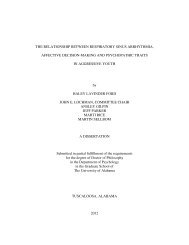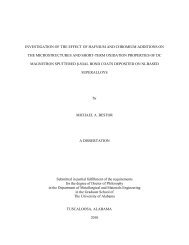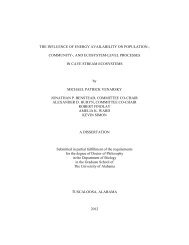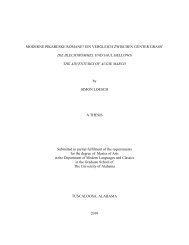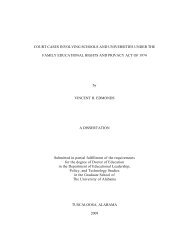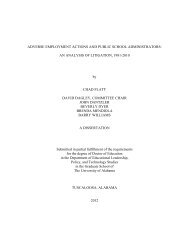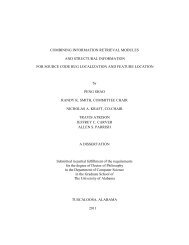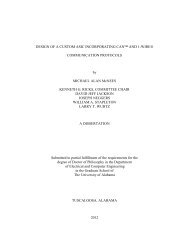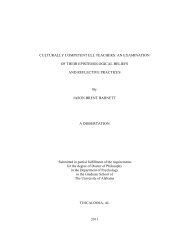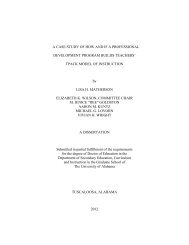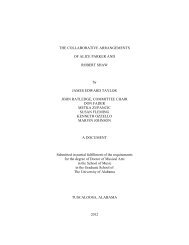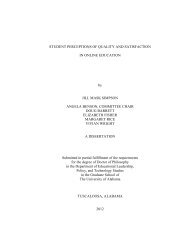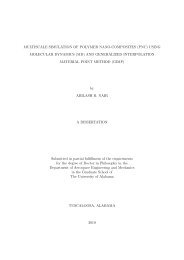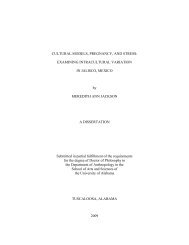Copyright Malvin Porter, Jr. 2010 - acumen - The University of ...
Copyright Malvin Porter, Jr. 2010 - acumen - The University of ...
Copyright Malvin Porter, Jr. 2010 - acumen - The University of ...
Create successful ePaper yourself
Turn your PDF publications into a flip-book with our unique Google optimized e-Paper software.
easoning and intellectual abilities correlate with their social behavioral competencies. Future<br />
studies should attempt to identify clusters <strong>of</strong> children who sometimes justify aggressive actions<br />
with prosocial justifications.<br />
Third, this study found that Justice/fair justifications related to prosocial action choices.<br />
Children who chose Justice/Fair Justification Choices were more likely to choose Prosocial<br />
Action Choices than children who chose Aggressive Action Choices. <strong>The</strong>se findings are<br />
consistent with findings from previous research in which children sometimes rationalize their<br />
prosocial behavior as a means <strong>of</strong> reconciling and reaffirming social relationships and values<br />
among peers (David & Choi, 2009); And, in which some children are motivated to behave in<br />
prosocial ways because <strong>of</strong> the concern about equality and fair treatment in support <strong>of</strong> the well-<br />
being <strong>of</strong> a victim (Eisenberg-Berg, 1979; Miller, Eisenberg, Fabes, & Shell, 1996). In contrast,<br />
other research finds that children sometimes use Justice/Fair Justification Choices to explain<br />
their Aggressive Action Choices as a way evoke equality, shift blame to the victim, or exonerate<br />
their own actions (Bandura, 1973; Dodge et al., 1997). Interestingly, other research supports the<br />
notion that children sometimes make discrepant judgments in favor <strong>of</strong> retributive punishment<br />
that they later recant in favor <strong>of</strong> more restorative behavioral outcomes (Carlsmith, 2008).<br />
CBS Prosocial and Aggressive as Predictors <strong>of</strong> CBVS Action Choices and Justification Choice.<br />
This study found that neither the teacher-reports <strong>of</strong> children’s Prosocial behavior with<br />
Peers nor teacher-reports <strong>of</strong> children’s Aggressive behavior with Peers were predictive <strong>of</strong> CBVS<br />
Action Choices (Prosocial vs. Aggressive) or CBVS Justification Choices (Prosocial/Care vs.<br />
Aggressive/Retribution vs. Justice/Fair). <strong>The</strong> number <strong>of</strong> times that Aggressive Action Choices<br />
were selected was much less than the number <strong>of</strong> times that Prosocial Action Choices were<br />
selected. Additionally, few children who participated in the study were rated by teachers as<br />
144



